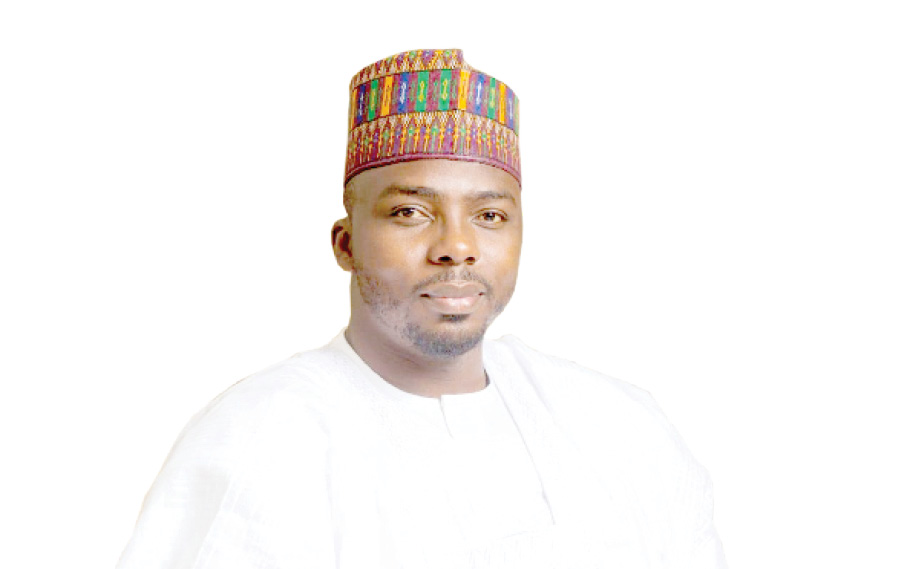How we’re redefining the concept of youth employment – Ibrahim
Abubakar Garba Ibrahim is the Chief Operating Officer and Co-Founder of Silvex International, an agribusiness company established about 10 years ago. In this interview, Ibrahim talks about the challenges before the Nigerian youths among other things. What does your company do? Silvex is an integrated agribusiness company with diverse interests in the agricultural value chain. […]

Abubakar Garba Ibrahim is the Chief Operating Officer and Co-Founder of Silvex International
Abubakar Garba Ibrahim is the Chief Operating Officer and Co-Founder of Silvex International, an agribusiness company established about 10 years ago. In this interview, Ibrahim talks about the challenges before the Nigerian youths among other things.
What does your company do?
Silvex is an integrated agribusiness company with diverse interests in the agricultural value chain. We started as a commodity trading company. Basically, aggregating and trading commodities locally, we gradually metamorphosed into a fully integrated agribusiness company, we are currently involved in primary production, processing and trading of agricultural commodities locally and internationally. We have also diversified into logistics and mining, especially industrial minerals.
- APC chairmanship: Lalong counters Fayemi, says Buhari told governors his preferred candidate
- Still on Nigerian government’s smallness and ineffectiveness to the masses
What really motivated you to start this company?
I believe that every human alive has a purpose – a calling – that goes much deeper than simply enjoying a career or the money that comes with it. The earlier you begin the process of discovering this calling, the sooner you can find more meaning and fulfillment in your work.
Agriculture was among the earliest of civilized man’s occupations, and it has been the main economic basis of every civilization down to fairly recent times.
Having identified the challenges in the agricultural value chain right from our school days, we identified most of these challenges as opportunities, and decided to make an impact through them.
Are you a graduate of agriculture?
Actually, I studied agriculture for my undergraduate studies and I also studied Masters in Business Administration MBA with specialization in Agribusiness Management at Dangote Business School Bayero University Kano but I think it is more about the passion that I have for agriculture.
How did you source funding to start this investment?
Rome was not built in a day and somebody has to start from somewhere. It was a very humble beginning, we started from scratch basically from commodity trading with a moderate trading capital and also acting as buying agents for foreign companies operating in the country.
Do you grow your products or buy from others?
We are currently building sustainable supply chains for our commodities through innovative farming systems, we empower farmers to produce these commodities in a manner that will ensure sustainability, accessibility, affordability, traceability and quality of our products. We also do direct production of different commodities across many locations.
How do you support these farmers?
Farmers are the biggest beneficiaries of our business model; we have a comprehensive market driven out-grower and in-grower schemes. We give farmers access to land with irrigation facilities, supply them with top farming inputs especially improved seed varieties and fertilisers, we train them on good agronomic practices and provide extension services through our field coordinators and lead farmers. We also buy-back from the farmers at prevailing market rates. We are currently partnering with LINKS (a DFID/FCDO-UKAID-funded project) to deliver development projects that empower our farmers.
Why are you more interested in engaging the youth?
We are redefining the concept of employment for youths in Nigeria through our innovative approach to farming. Based on some recent analysis, we realise that farmers under our out-grower and in-grower schemes are getting between 300 – 500 per cent returns in a production cycle, since farmers can do up to three production cycles in a year with irrigation facilities, they can accumulate about two million naira per annum, which is an average of one hundred and sixty thousand naira per month. When you look at these figures, it’s by far more than what a director earns in many states.
Under our in-grower schemes we give priority to educated youths who are based in the communities where we have lands, so we are creating a new generation of elite farmers in the country.
Where do you see yourself in the next five years?
To be a foremost agribusiness, mining and logistics company in Africa with a footprint in key global markets globally.
What advice do you have for unemployed young Nigerians?
To be honest, I always advise my fellow youths that these so-called white-collar jobs don’t exist. And even if they exist, why can’t you start your own instead of joining to build someone else’s dream.
